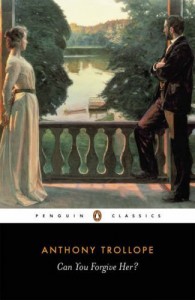Golden Lotus or Jin Ping Mei (alternate romanizations include Chin P'ing Mei) is one of the classic novels of imperial China, along with, for instance, The Scholars, Three Kingdoms, Outlaws of the Marsh, Journey to the West, and A Dream of Red Mansions. Of all of them (possible exception The Scholars), it is the one you're least likely to encounter. It is banned in China for its erotic content (of which I will say more later), so modern translations do not abound. Work was underway in the late 90's on a new translation, but generally only the first few volumes are available. The others were either abandoned, or, if I remember the story right, the translator is very old and may not outlive the task. Just to finish the textual discussion, the version I read is a 1939 UK translation, which originally had the vulgar parts rendered in latin, but which has recently been unexpurgated by translating them back into English. I offer you no picture because amazon does not possess a copy of the edition I read. Look for it on eBay.
The elephant in the living room here is obviously the vulgarity issue: how filthy is it, what did they translate back into English, and so on. I'm going to disappoint you now — the vulgar parts are by far the most boring. Yes, there are some pretty ribald descriptions in there, depicting oral and anal sex, watersports, light bondage, sex toys, menages a trois, and so on. In fact, they're all basically in every chapter. But after the tenth description of sexual acts between Hsi-men Ch'ing (old romanization, but that's going to happen in 1939 translations. Try… Ximen Qing) and one of his many partners, it becomes, well, if I can borrow a line from family guy: it's like, she's naked, but who gives a shit? Maybe if you still have access to the really really juvenile parts of your psyche, you might think it's funny when someone wants to "tease the flower in her bottom," or when someone "was adept at playing the flute," but yeah, it's not going to be a non-stop thrill ride.
What you are likely to find more edifying is the description of the interaction between his six wives, their various maids and manservants, and the singing boys and girls that come to the house. As if… Raise the Red Lantern was a full 100 chapter novel instead of a novella. If you enjoy that kind of family politics, there is probably enough to get you through the rest of the book.
I can't, in good conscience, give this a great recommendation, though. The last 20+ chapters are extremely tedious, dealing with the eventual fates of virtually every member of the household, long after the principals are dead. It's as if the author knew people were going to speculate on what happened after the story, so he decided to record…
You know exactly what it is? It's the fucking Silmarillion. Even if you like Tolkein, reading it is like pounding nails into your dick. Now imagine that they tacked that on to the end of the Return of the King. It would make the whole novel worse, right?
That's what's happening here.
So read it, or, you know, don't. It took me a year. I could have read Dream of Red Mansions three times in that span.
[P.S. – I don't know if a better translation would make it more palatable, but volume 3 of the new version was published in 2006, so there is some chance it will be finished eventually. Maybe a follow up review in 5 years?]

